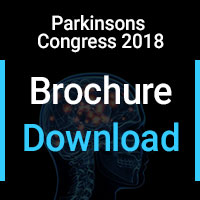
Rapita Naresh Sood
McGill University, Canada
Title: Role of the mTOR signaling pathway in epilepsy specifically in eIF4ebp2 KO mice
Biography
Biography: Rapita Naresh Sood
Abstract
Epilepsy, a common neurological disorder characterized by recurrent seizures that are unpredictable and sometimes progressively severe affecting 50 million people worldwide. Mutations in TSC1/2, PTEN and FMR1 genes cause Tuberous Sclerosis, PTEN hamartoma syndrome and fragile X syndrome respectively and lead to intellectual disability, autistic-like behaviour and epileptic seizures. Mutations in these genes cause upregulation of mTORC1 signalling, however the role of mTORC1 downstream effectors, such as 4E-BPs and S6K, in the pathophysiology of the disorders is not well understood. In the current project we set out to study the contribution of cap-dependent translation and 4E-BP2, downstream of mTORC1, in the susceptibility to seizures. Our previous study showed that deletion of 4E-BP2 leads to autism-like phenotypes and imbalance of excitatory to inhibitory synaptic activity. We recently found that eIF4ebp2 KO mice show reduced threshold to seizure-inducing agent (PTZ) at concentration of 70 mg/kg IP. As part of this project we would like to see whether inhibition of eIF4A would rescue or attenuate the seizure phenotype. The first experiment we are planning is to inject intraperitoneally WT and eIF4ebp2 KO mice with vehicle and eIF4A inhibitor. The experimental studies is still going on and furthermore, is needed to understand the role of mTOR signaling pathway in epileptogenesis, and that it may be a target for the development of novel therapies that eliminate the progressive effects of seizures.

